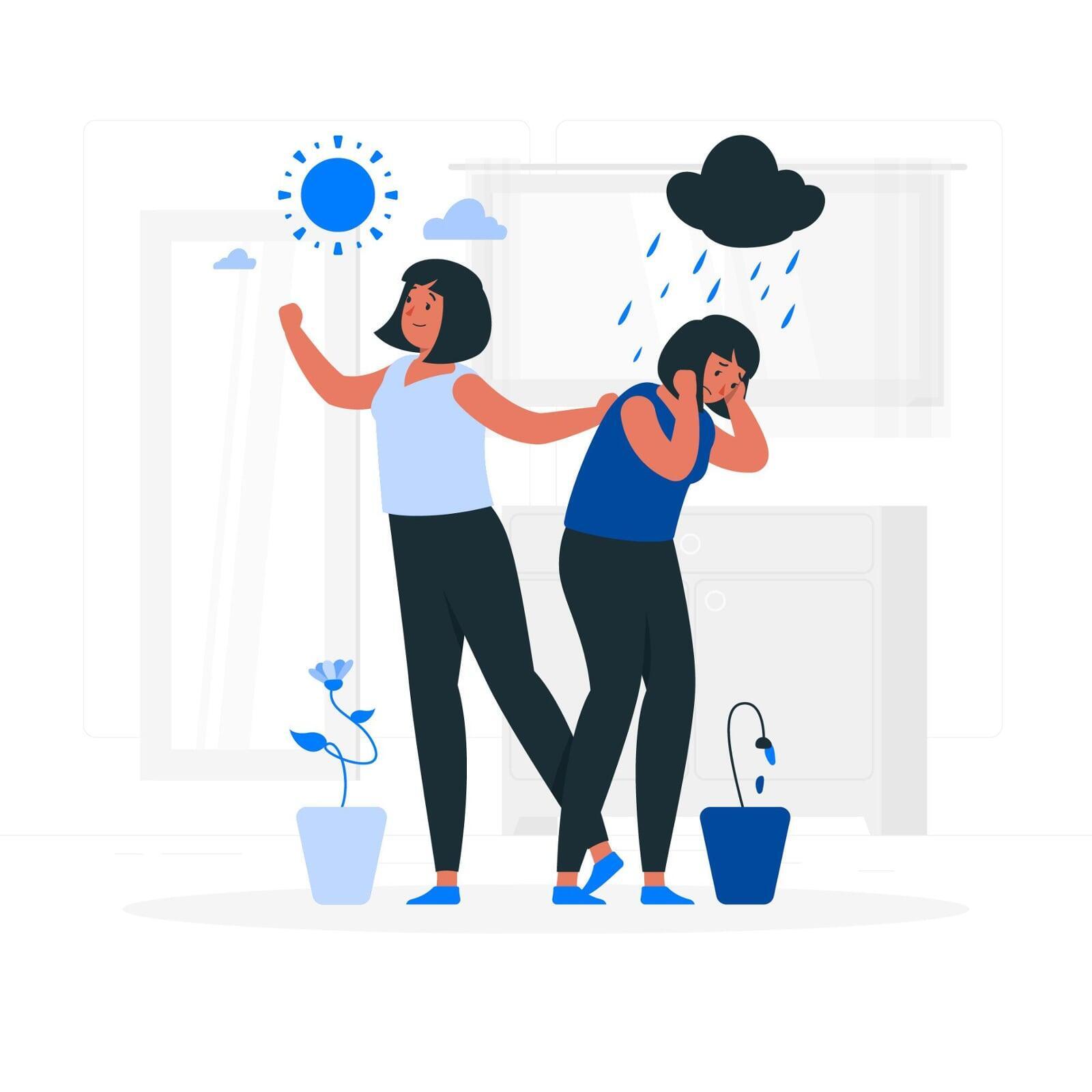
Winter.
It feels like the cold will never end.
Sickness takes over.
When the days feel too short, and the nights too long.
Winter can be a challenging season for your mental health. The colder temperatures, shorter days, and reduced sunlight can lead to feelings of fatigue, sadness, and even symptoms of Seasonal Affective Disorder (SAD).
The Science Behind the Winter Blues

Ever notice how your mood changes when the days grow shorter? You are not alone, and it's not just in your head—there's real science behind the winter blues.
As sunlight dwindles, so does serotonin, the brain's natural mood stabilizer. Research shows that reduced exposure to natural light can lower serotonin levels, contributing to feelings of depression and lethargy. At the same time, your body increases melatonin production due to the longer periods of darkness. Melatonin is responsible for regulating sleep cycles, but when levels are too high, it can cause excessive drowsiness and disrupt normal energy patterns. This imbalance can lead to fatigue, difficulty concentrating, and an overall sense of sluggishness.
Psychologists also emphasize the role of circadian rhythms—your body’s internal clock. With fewer daylight hours, your circadian rhythm can become misaligned, leading to disruptions in sleep and mood regulation. This is why some people experience Seasonal Affective Disorder (SAD), a form of depression that occurs at the same time each year, typically in winter. Individuals with SAD will show abnormal serotonin activity, making them more susceptible to mood fluctuations during the colder months.
On top of all this, we also have the isolation factor. Social connection has been found to be one of the strongest protective factors against depression. However, when temperatures drop, social plans get postponed, and the temptation to hibernate indoors grows stronger. While cozy nights can be comforting, too much alone time can lead to loneliness, which can negatively impact mental health.

Lastly, let’s not forget movement. Physical activity is a natural mood booster, thanks to the endorphins it releases. Even the smallest reductions in physical activity can increase the risk of depressive symptoms, so when icy sidewalks and early nightfall make it harder to stay active, the body loses one of its best stress-busting tools.
How to Maintain Positive Mental Health
- Regulate Your Mind & Mood: Brighten your space with a light therapy lamp, stick to a consistent sleep schedule, and engage in mindfulness techniques like meditation, deep breathing, or journaling to help regulate emotions and reduce stress.
- Stay Socially Connected: Make plans to meet friends or family in person, even if it is just for a quick coffee. You can also try setting up virtual chats or participating in online communities to maintain a sense of connection.
- Move Your Body: Find creative ways to stay active, whether it's at-home workouts, dance breaks, or bundling up for a brisk winter walk. Exercise releases endorphins, which naturally boosts mood and energy levels.
- Get Outside When Possible: Even brief exposure to natural light can help regulate your internal clock and improve your mood. Try stepping outside in the morning or sitting near a window during the day.
- Challenge Negative Thoughts: Recognize and reframe negative thinking patterns that tend to emerge during winter. Focus on what you can control, set small, achievable goals, and remind yourself that seasons change—both literally and emotionally.
- Reframe Your Perspective: Instead of dreading winter, find ways to embrace it. Cozy up with a book, try a new winter hobby, or plan small things to look forward to, like a weekend getaway or a self-care day.
One of the most powerful ways to boost mental health is by focusing on the positive. Use the comment section below as a space to share small moments of joy, gratitude, or personal wins throughout the season. Whether it’s a kind gesture, a funny moment, or something you’re looking forward to, posting your bright spots can lift your own mood—and someone else’s too!
